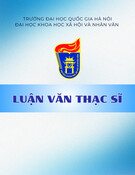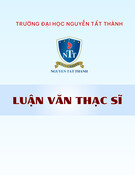
iii
Acknowledgement
Indonesia has been moving along with its decentralization reform since 1999, but the
results are still unclear and sometimes far from satisfying. Many reports and the
media make this comment about Indonesian decentralization. Some of my
experiences as a civil servant in one of the central offices of the Ministry of National
Education (MONE) proved that those reports are right. This phenomenon aroused
my curiosity about the meaning of decentralization. Why do many people in schools
complain about decentralization? What have district offices been doing so far to
serve schools?
At first I was stranded in Jakarta State University (Universitas Negeri Jakarta/UNJ)
in one of its doctorate classes. After finishing all the courses, finally, it was about
time for the dissertation, unfortunately most people tend to take quantitative path
rather than qualitative approach of knowing. I was told that if the questions above are
to be answered scientifically, I should take another path of knowing. This forced me
to divert to another path, the qualitative approach. Fortunately, soon I was informed
that RMIT University in Melbourne had accepted my proposal together with my two
colleagues; Mr. Didik Suhardi and Mr. Moch. Abduh. And most importantly, the
qualitative path was offered at RMIT. This was why I finally joined in one of RMIT
schools to continue my journey of knowing.
I was lucky to meet Dr. David Hodges and Dr. Bill Vistarini as supervisors and Dr.
Slamet PH as our local supervisor. Without their understanding, patience, and strong
supervision, it would be too difficult and too long for us to finish this study. This was
mainly because we were working full time while studying, and worse, English is not
our first language. Completing a doctoral degree while working full time, is never
easy. But in the end, I realized that the knowledge and experiences gained during this
journey of knowing are significantly important to me as an individual and for the
MONE as a learning organization facing problems with implementing
decentralization.































